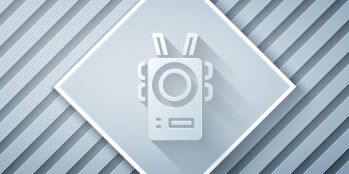Adequate
Carbohydrates
At least 100 grams of carbohydrates per day are needed to prevent fatigue and
dangerous fluid imbalances. To make sure you get enough carbohydrates, eat 6-11
servings (see Figure 2) from the Bread, Cereal, Rice, and Pasta Group on the
Food Guide Pyramid every day.
Fiber
Intake
Adequate fiber helps with proper bowel function. If you were to eat 1 cup of
bran cereal, 1/2 cup of carrots, 1/2 cup of kidney beans, a medium-sized pear,
and a medium-sized apple together in 1 day, you would get about 30 grams of
fiber.
Adequate
Protein
The average woman 25 years of age and older should get 50 grams of protein
each day, and the average man 25 years of age and older should get 63 grams of
protein each day. Adequate protein is important because it prevents muscle
tissue from breaking down and repairs all body tissues such as skin and teeth.
To get adequate protein in your diet, make sure you eat 2-3 servings (see Figure
2) from the Meat, Poultry, Fish, Dry Beans, Eggs, and Nuts Group on the Food
Guide Pyramid every day. These foods are all good sources of protein.
Fat
Per Day
No more than 30 percent of calories, on average, from fat per day, with less
than 10 percent of calories from saturated fat (such as fat from meat, butter,
and eggs). Limiting fat to these levels reduces your risk for heart disease and
may help you lose weight. In addition, you should limit the amount of
cholesterol in your diet. Cholesterol is a fat-like substance found in animal
products such as meat and eggs. Your diet should include no more than 300
milligrams of cholesterol per day (one egg contains about 215 milligrams of
cholesterol, and 3.5 ounces of cooked hamburger contain 100 milligrams of
cholesterol).
Fixed-menu
diet
A fixed-menu diet provides a list of all the foods you will eat. This kind of
diet can be easy to follow because the foods are selected for you. But, you get
very few different food choices which may make the diet boring and hard to
follow away from home. In addition, fixed-menu diets do not teach the food
selection skills necessary for keeping weight off. If you start with a
fixed-menu diet, you should switch eventually to a plan that helps you learn to
make meal choices on your own, such as an exchange-type diet.
Exchange-type
diet
An exchange-type diet is a meal plan with a set number of servings from each
of several food groups. Within each group, foods are about equal in calories and
can be interchanged as you wish. For example, the “starch” category could
include one slice of bread or 1/2 cup of oatmeal; each is about equal in
nutritional value and calories. If your meal plan calls for two starch choices
at breakfast, you could choose to eat two slices of bread, or one slice of bread
and 1/2 cup of oatmeal. With the exchange-type diet plans, you have more
day-to-day variety and you can easil
Diet Planning was originally published on blackdoctor.org
















